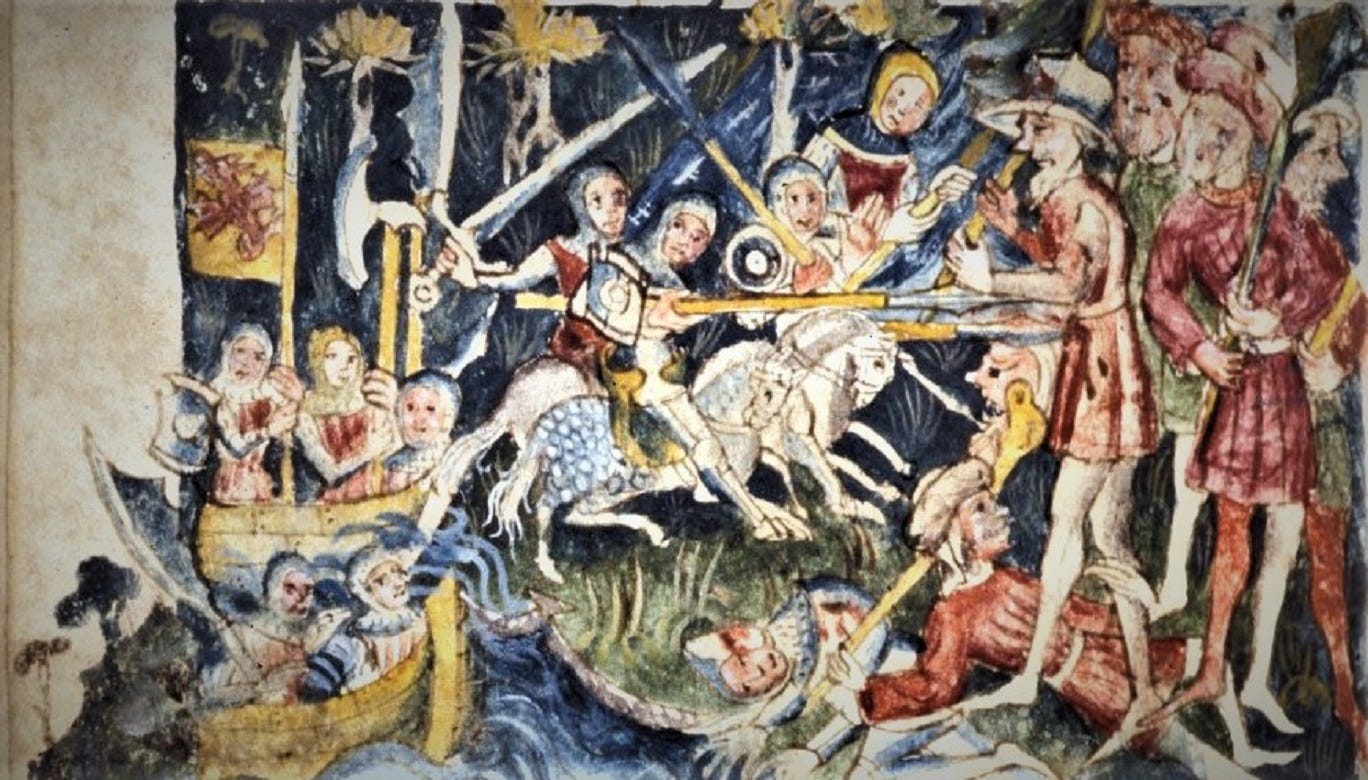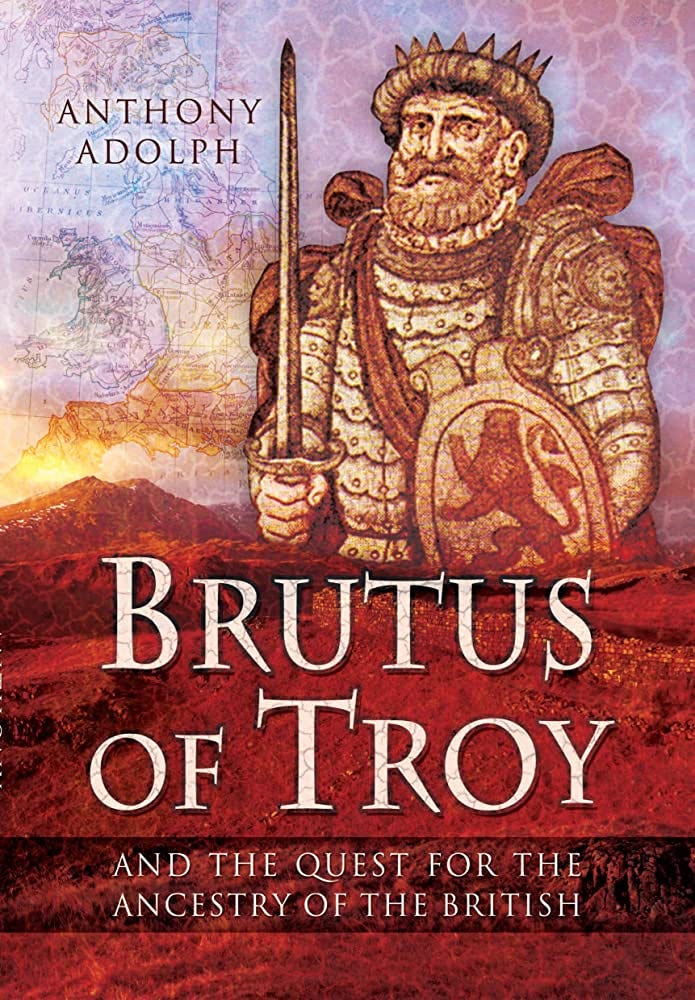Featured Episode - Rediscovering Brutus of Troy: The Mythical Ancestor to the Britains
Issue 39

In This Episode
In this episode, host, Petros Koutoupis, sits down with professional genealogist and historical researcher and author, Anthony Adolph. They discuss Anthony’s book, Brutus of Troy: And the Quest for the Ancestry of the British. Who was the legendary Brutus of Troy and why was he important to the British? What did Brutus symbolize and why link him back to the Trojans (of the Trojan War)? Is there evidence to prove his existence? Tune in for the answer and more.
You can listen to this episode on:
Glossary
Aeneas - A Trojan hero and the son of the Trojan prince Anchises and the Greek goddess Aphrodite (the Roman Venus).
Aeneid - A Latin epic poem written by Virgil in the second half of the first century BCE. It tells the tale of the legendary Aeneas fleeing Troy and traveling to Italy.
Albion - An alternative and ancient name to Great Britain.
Anatolia - The region that is Turkey today.
Arthur - A legendary king to Britain and a central figure in medieval literary tradition.
Atreus - A king of Mycenae in the Greek Peloponnese and father of both Agamemnon and Menelaus.
BCE - Before the Common Era, the equivalent of B.C.
Bronze Age - Defines a historic period dated to approximately between 3300 BCE and 1200 BC. It is characterized by the use of bronze, the presence of writing in some areas, and other early features of urban civilization.
Brutus of Troy - A legendary descendent of Aeneas, known in Medieval British literature and history. He is the eponymous founder and first king of Britain.
CE - The Common Era, the equivalent of A.D.
Cuneiform - A wedge-shaped logo-syllabic script used to write several languages of the Ancient Middle East.
Etruria - A region once located in central Italy and what is Tuscany today.
Etruscans - An ancient civilization inhabiting ancient Etruria as early as 900 BCE. They were highly cultured and spoke a unique Etruscan language still largely undeciphered today. The Etruscans were competing with the Greeks and later Carthaginians for control over the Tyrrhenian region and until they were eventually absorbed into the Roman empire.
Geoffrey of Monmouth - (ca. 1095 CE – ca. 1155 CE) A cleric and writer from Monmouth, Wales whose works focused primarily on the history of Britain with tales involving King Arthur and Brutus of Troy.
Gogmagog - A legendary giant in Welsh and English mythology who inhabited Albion.
Hittite - An ancient civilization and empire that controlled most of the Anatolian mainland.
Late Bronze Age - A historical period defining the end of the Bronze Age in the Eastern Mediterranean that began at c. 1500 BCE and ended c. 1200 BCE.
Lydia - An Iron Age kingdom of western Anatolia (1200–546 BCE).
Nennius - A Welsh monk and writer of the 9th century CE.
New Troy - Not to be confused with the Ilium Novum (New Troy) of the Roman period, established on the historical site of Troy at Hisarlik in Turkey. According to tradition and after freeing the land of giants, Brutus establishes a new city called New Troy on the site which would later become London.
Romulus - The mythical hero and founder of both the city of Rome and the Roman people.
Saxons - A group of Germanic peoples living near the coast of Northern Germania who were in constant conflict with nearby nations during the Medieval Period.
Virgil - An ancient Roman poet (70 - 19 BCE) who is best known for his Latin works: the Eclogues (or Bucolics), the Georgics, and the epic Aeneid.
Recommended Books
Brutus of Troy: And the Quest for the Ancestry of the British
By Anthony Adolph
The book covers the story of Britain's search for its identity before and after the arrival of Christianity, leading up to the invention of the seeds of the Brutus myth in the 600s AD. It charts the development of his myth into a fully blown adventure story under the pen of Geoffrey of Monmouth in the 1100s. It then explores Brutuss story through the Middle Ages, as the centerpiece of Britain's national consciousness and an important tool in royal and national propaganda and foreign policy (i.e. his myth was used as an excuse for invading Wales and Scotland). The book then charts the way his myth dropped out of mainstream politics and history after the Glorious Revolution of 1688 and lived on in a new afterlife in literature. Though no longer part of the way Britain sees itself now (though maybe this book will change that!), the Brutus myth has been used in many alternative theories about Britain's origins and is still believed in by a small but hard core of Christians who see him as the divine instrument by which the ancestors of the Americans reached Britain in the first place.




